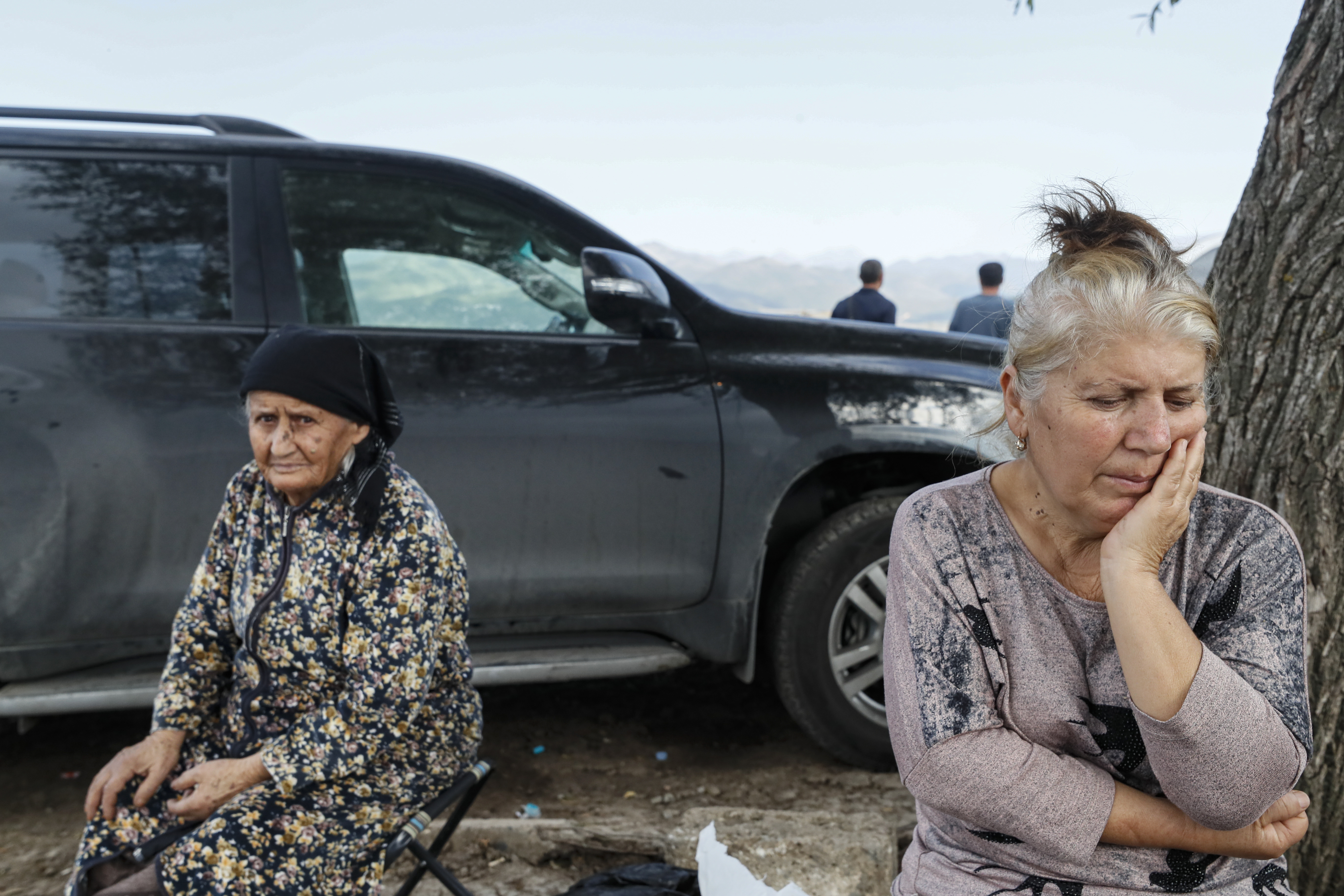
Khankendi, Azerbaijan – An eerie silence blankets the town square of largest city in the Nagorno-Karabakh region
Baby strollers, chairs, and empty boxes are all that remain in the square after more than 100,000 Armenians fled Khakendi in haste, the latest casualties of an old territorial conflict.
Azerbaijan defeated separatist forces in the breakaway region last month leading to Armenian leaders agreeing with Baku that the so-called state of Artsakh will cease to exist.
After the separatist forces were routed, the ethnic Armenians of Nagorno-Karabakh, part of oil-and-gas-rich Azerbaijan that had been beyond Baku’s control since the dissolution of the Soviet Union, began fleeing into Armenia.
Khankendi’s residents too, fearful of persecution, left for neighbouring Armenia, leaving behind their homes and businesses.
They departed despite Azerbaijan’s assurances of their safety and equal treatment as citizens.
Red Cross workers are in Khankendi, known to Armenians as Stepanakert, offering to evacuate those who could not find space on the buses and cars heading to Armenia.
The city’s morgue staff have also left, so even the dead being repatriated to Armenia by the Red Cross.
“We continue to find other people stranded for the time being in the city and we have another concern considering the rural areas haven’t been reached yet,” Marco Succi from the Rapid Deployment Team of the International Committee of the Red Cross (ICRC) told Al Jazeera.
“If you ask me about immediate needs, it’s electricity, water and gas for [the] coming winter. ICRC has worked with Azerbaijan authorities and look forward to working with them,” he added.
Puppies, left exposed to the elements, run to anyone they see in the square, hoping to be fed. Horses wander the roads, lost without their masters, their hooves on the tarmac breaking the silence.
An occasional ambulance travels down the windswept streets, searching for anyone left behind in need of medical assistance.
It’s a scene is repeated throughout the city.
Palpable anger
Even Russian peacekeepers, who have been deployed in Nagorno-Karabakh since the end of the previous war over the region in 2020, have left some of their checkpoints in the city.
But for Armenians whose families have called the region home for centuries, leaving isn’t an easy choice. Gathering at a staging point to get out of Khankendi, anger is palpable in their voices.
“This is our city,” one man told Al Jazeera as he boarded the bus ready to be taken to Armenia.
The staging point is also a place where the very few Armenians who want to remain say goodbye to their departing family and friends.
“I want to live here with everyone, I have Azerbaijani friends who tell me I shouldn’t leave so I am staying here,” a middle-aged man told Al Jazeera as he chatted with an Azerbaijani man.
The city’s new Azerbaijani administration told Al Jazeera that it has established a registration centre, provided ambulances, revamped mobile networks and connected the city to Azerbaijan’s electric grid.
Azerbaijan says it wants to restore Khankendi after 30 years of conflict and occupation and that it hopes Nagarno-Karabakh’s former residents will return.
“For the last 30 years, Azerbaijan has suffered from the occupation. Around one million Azerbaijani population have become refugees and IDPs and left this region,” Aykhan Hajizada, spokesman for Azerbaijan’s foreign ministry, told Al Jazeera, referring to internally displaced persons. The population of Nagorno-Karabakh was majority Armenian, but Armenia seized other swaths of Azerbaijan after the first Nagorno-Karabakh war and many Azerbaijanis fled the occupation.
“Now, as a result of the 24-hour anti-terrorism measures taken by Azerbaijan, Azerbaijan has finally restored its sovereignty over its territories. We are now calling on the Armenian population to come back. We are ready to embrace Armenian population,” Hajizada added.
In Khankendi, it is clear that the city will need more than those assurances to truly rebuild. Ethnic Armenians will need to trust that they are safe in Azerbaijan. On the empty streets of Khankendi, that trust is not visible at the moment.







